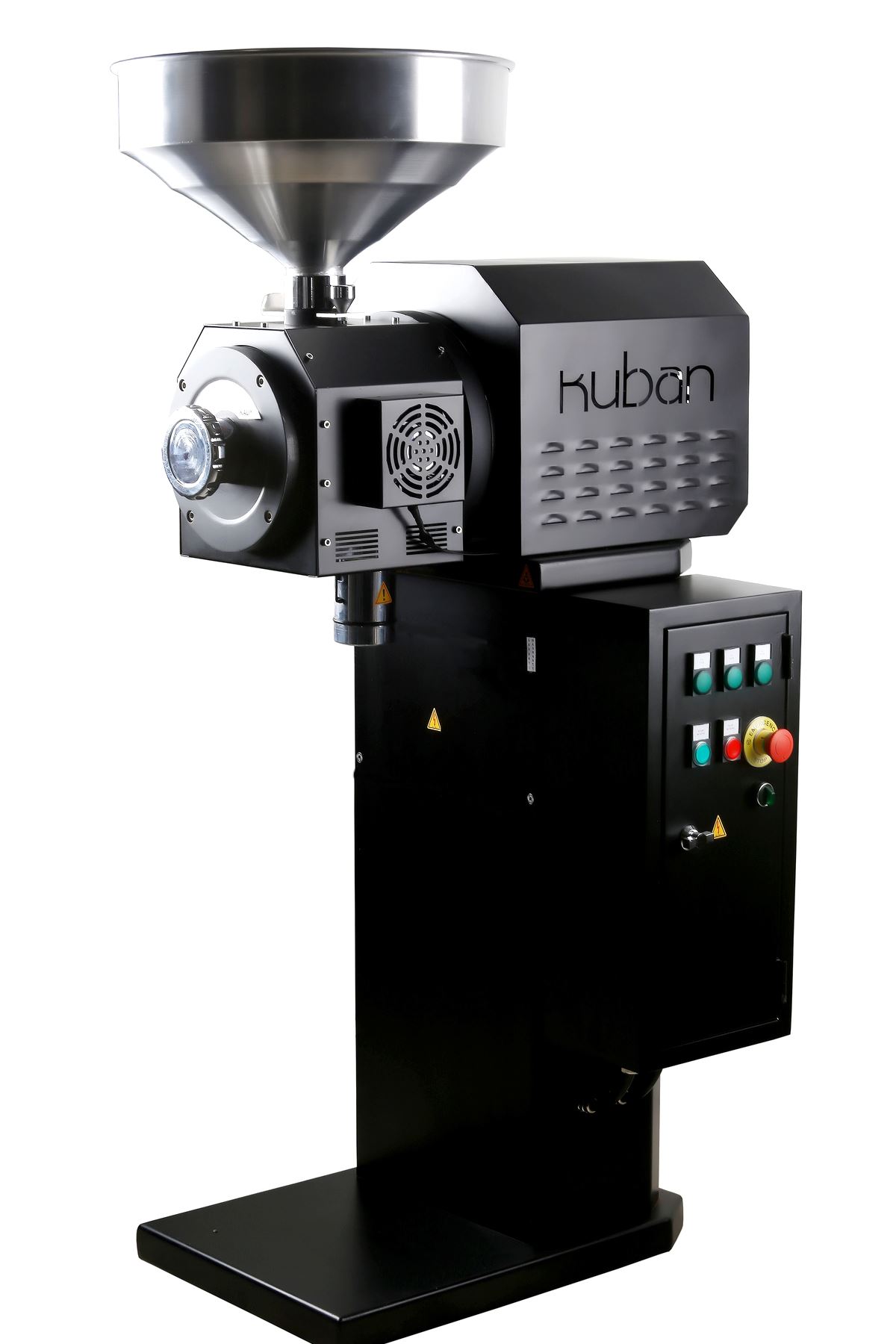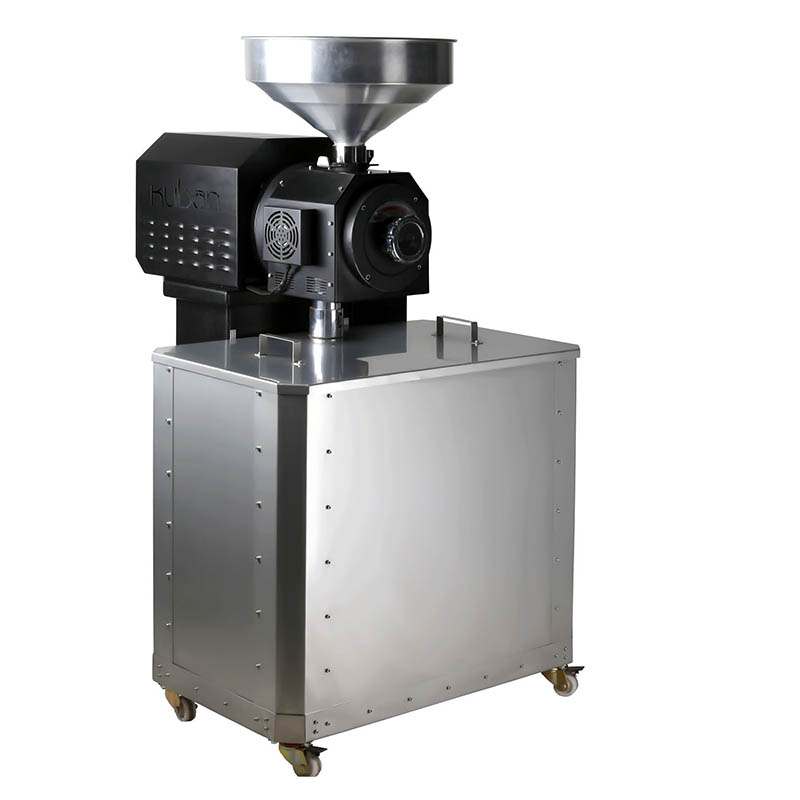Industrial Coffee Grinder for Large-Scale Brewing: A Must-Have Tool
Exactly How to Choose the Perfect Industrial Coffee Mill for Your Service
Choosing the optimal industrial coffee grinder for your business is a complex decision that needs cautious consideration of numerous vital factors. It is crucial to examine your particular grinding needs, including the quantity of coffee processed and the wanted grind consistency, as these components directly affect flavor and client complete satisfaction. Additionally, recognizing the various sorts of mills available can dramatically affect your operational effectiveness. As you browse these considerations, one need to likewise consider the ramifications of budget plan and maintenance. What various other factors could make or break your option?
Assess Your Grinding Needs
When choosing a commercial coffee mill, one have to initially examine their grinding demands to make sure optimal efficiency and uniformity. This first analysis involves comprehending the volume of coffee to be processed daily, as well as the preferred grind size for numerous brewing methods. A high-capacity mill may be needed for services offering big quantities of coffee, while smaller operations may locate an extra portable design enough.
Furthermore, it is important to take into consideration the types of coffee beans being used, as different beans may call for particular grinding strategies to achieve the ideal taste profile. For instance, oily beans may necessitate a mill created to handle such attributes without overheating or clumping.
An additional important factor is the called for grind consistency. Specialty coffee organizations often demand exact work sizes to boost removal and flavor, making it crucial to pick a mill that can deliver uniform results. Finally, examining the readily available space and electric demands will aid in picking a mill that fits seamlessly into your operational process. By completely evaluating these aspects, organizations can make enlightened decisions that line up with their coffee grinding needs, ultimately leading to a premium product and satisfied consumers.
Understand Grinder Kind
Recognizing the numerous kinds of commercial coffee grinders is important for making an educated selection that satisfies certain functional needs. There are mainly two classifications of grinders: blade grinders and burr mills.
Blade grinders utilize spinning blades to cut the coffee beans, causing an irregular grind size - Industrial Coffee Grinder. While they may be extra economical, they are usually not ideal for industrial applications where precision is crucial
On the various other hand, burr mills offer a much more uniform grind by crushing the beans between two surfaces. They can be further classified right into level burr and conical burr grinders. Flat burr mills use a regular work size and are normally favored for espresso preparation, while cone-shaped burr grinders are functional and can take care of a variety of brew techniques, from espresso to French press.
When choosing a mill, consider the details demands of your service, consisting of preferred work consistency, manufacturing volume, and the sorts of coffee beverages you prepare to supply - Industrial Coffee Grinder. Each mill type has its advantages and restrictions, so comprehending these subtleties allows informed decision-making that lines up with operational goals
Evaluate Grind Dimension Uniformity
Accomplishing grind dimension uniformity is important for creating premium coffee, as variants in particle dimension can dramatically affect extraction and taste. When choosing an industrial coffee mill, it is crucial to evaluate just how well the device maintains harmony in grind dimension across various batches. Inconsistent grind dimensions can result in irregular extraction, leading to a mug that may taste weak or extremely bitter.
To evaluate work dimension consistency, take into consideration mills with functions such as flexible work settings and high-grade burrs. Burr grinders, in certain, excel in generating uniform bit dimensions contrasted to blade grinders. The material and shape of the burrs play an important duty, with stainless steel and ceramic choices offering durability and precision.

Take Into Consideration Production Capacity
In the fast-paced world of coffee production, considering manufacturing capacity is paramount for businesses aiming to meet demand without sacrificing high quality. The manufacturing capability of a commercial coffee grinder directly influences a company's ability to meet orders successfully, take care of stock, and reference react to changing market patterns.
When examining manufacturing capability, it is necessary to review the mill's outcome rate, generally measured in pounds per hour. This dimension needs to straighten with your service's forecasted sales volume and development targets. A coffee shop with a high turnover might need a grinder that can refine several hundred extra pounds daily, while a smaller operation could be sufficient with a lower ability design.
Furthermore, think about the kind of coffee being refined. Various beans and blends may impact grinding speed and efficiency, demanding a grinder with the ability of dealing with diverse manufacturing needs. It's additionally worth factoring in the mill's capacity to preserve consistent high quality under high outcome conditions, as any kind of variations can impact the end product.
Inevitably, selecting a mill that matches your business's manufacturing capability will certainly ensure you stay affordable and responsive to client expectations.

Budget Plan and Upkeep Elements
When evaluating the ideal industrial coffee budget, mill and upkeep factors play a substantial role in the general decision-making procedure. An initial investment in a high-grade mill can yield long-term benefits, however it's crucial to develop a clear budget that aligns with your organization's operational needs. Think about both the purchase cost and prospective functional expenses, such as power intake and substitute components.
Upkeep is an additional essential facet that can influence your spending plan. Industrial coffee mills need routine upkeep to make sure ideal performance and longevity. Evaluate the manufacturer's referrals for maintenance, including cleaning schedules and components replacement, as these will certainly influence long-term operational prices. In addition, take into consideration the schedule of solution and support, as dependable support can reduce downtime and repair expenditures.

Purchasing a mill that is sturdy yet simple to maintain can save cash in time. While lower-priced alternatives may be alluring, they might sustain higher maintenance expenses and reduced effectiveness. Ultimately, balancing first costs with long-term upkeep and operational effectiveness you could try these out will certainly direct you to the most effective selection for your service's coffee grinding demands.
Conclusion
Choosing the excellent commercial coffee mill demands a thorough examination of grinding demands, mill kinds, grind dimension uniformity, manufacturing capability, and monetary factors to consider. An appropriate mill not just boosts the top quality of the coffee generated yet additionally adds to the general success and earnings of the business.
Specialty coffee companies frequently demand precise work dimensions to improve extraction and taste, making it crucial to pick a mill that can provide uniform results. Flat burr mills offer a consistent grind size and are typically favored for espresso prep work, while conelike burr mills are flexible and can deal with a range of mixture techniques, from espresso to French press.
When selecting a commercial coffee grinder, it is essential to evaluate just how well the you could check here device maintains harmony in grind dimension across different batches. Burr mills, in specific, excel in generating uniform particle dimensions contrasted to blade mills.Selecting the perfect commercial coffee grinder demands a thorough analysis of grinding requirements, grinder types, grind dimension consistency, manufacturing capability, and budgetary factors to consider.